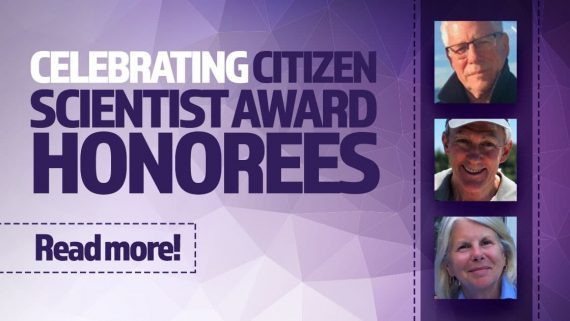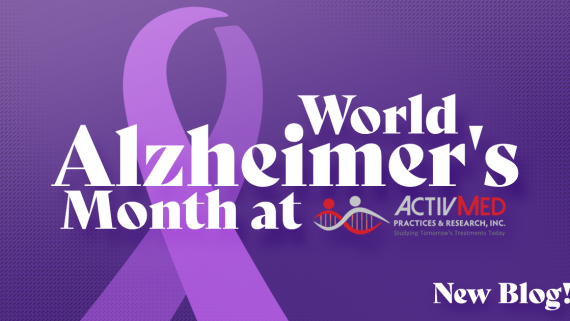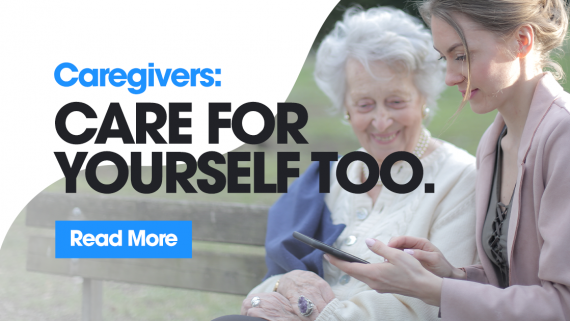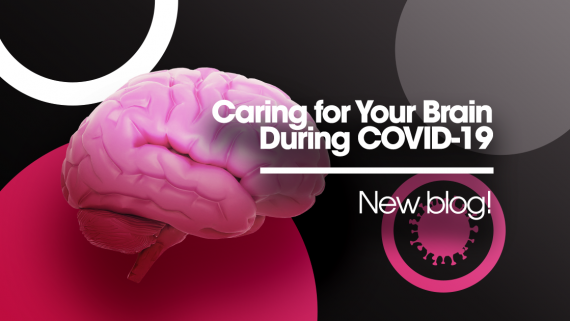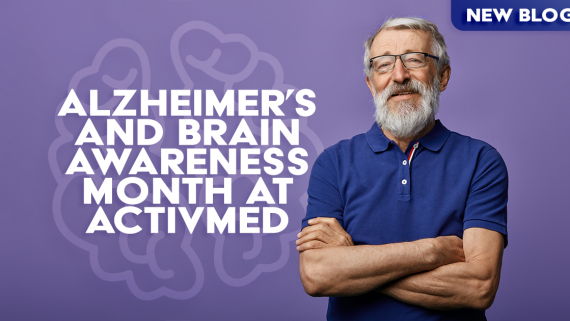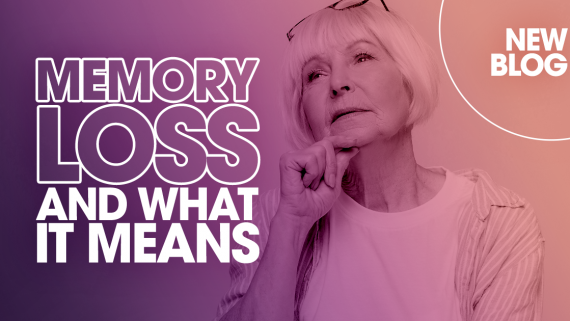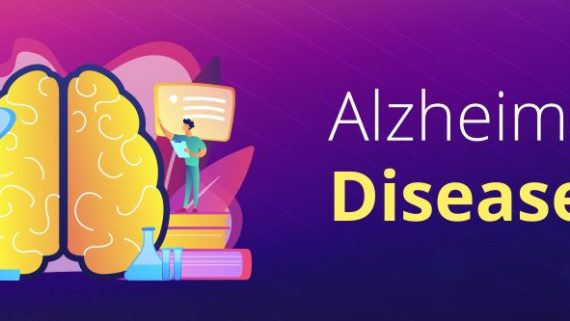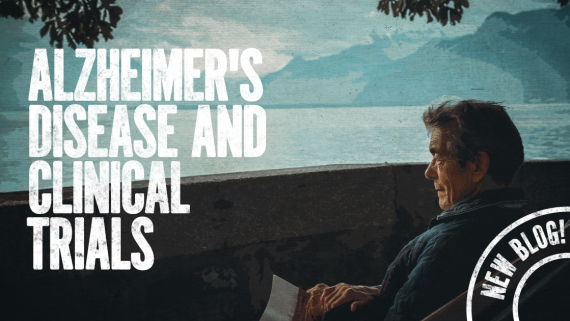The Green Memory study focuses on targeting microorganisms in your gut to determine if
rebalancing certain bacteria may improve brain function and slow the development of
Alzheimer’s disease.
Memory decline is more than just forgetting. Local physicians are seeking volunteers with history of memory decline between 50 & 85 years old to evaluate a trial medication to see if it helps symptoms. Find out more today.
For more information call 978-655-7155 or click here.
November is recognized as National Alzheimer’s Awareness Month! Every 65 seconds, an American develops Alzheimer’s disease. Approximately 5.7 million Americans are diagnosed with the progressive brain disease that destroys memories and cognitive ability. Family members across the world deal with watching their loved ones gradually lose their memory and eventually their independence.
Clinical research sites, including ActivMed, have invested time and energy in learning more about Alzheimer’s disease, and ultimately working towards a cure. However, the work being done by the professional medical community cannot happen without volunteers. It is the participants in clinical trials who play a crucial role in accelerating Alzheimer’s research.
The Global Alzheimer’s Platform Foundation (GAP) seeks to honor the necessity of clinical trial participants. The organization understands that volunteers are essential in ultimately finding a cure for Alzheimer’s disease. In effort to pay tribute to these volunteers, GAP created an award called the Citizen Scientist Award. This distinction is given to four individuals each year who have participated in Alzheimer’s disease clinical trials.
ActivMed is one of GAP’s research sites and part of the network committed to conducting clinical trials related to Alzheimer’s disease. We celebrate ActivMed’s nominees for the 2020 Citizen Scientist Award! Ted Boileau, Alan Hall and Katherine Hall each represent individuals with Alzheimer’s disease or someone at risk of developing the disease. While their motivations may be different, we are encouraged by their desire to be part of finding a cure for Alzheimer’s. They are three of the countless individuals who participate in clinical research each year.
The nominees for the Citizen Scientist Award were honored at the 7th Annual Trish Vradenburg Gala in October. The virtual event benefited UsAgainstAlzheimer’s, an organization pressing for greater urgency from government, industry and the scientific community in the quest for an Alzheimer’s cure. The organization plays a crucial role in educating the public, mobilizing volunteers and raising the funds that enable Alzheimer’s disease research to progress.

Organizations have the ability to advocate on a national level for Alzheimer’s disease. Additionally, volunteer support of local research helps the medical community work towards identifying a cure for Alzheimer’s disease. Without volunteer participation in clinical research and their encouragement to recruit new volunteers, Alzheimer’s research would not be possible. ActivMed applauds all participants for their willingness to be on the front line in the fight to end Alzheimer’s.
For more information about participating in a local research study, call 978-655-7155 or learn more about which studies are currently enrolling volunteers.
At ActivMed, we enjoy being an active leader in our community. Our passion for educating others about clinical trials through local events has been met with challenges during the global pandemic. While we miss the “face time” with others, we have refocused our efforts into virtual presentations. In addition, our research studies continue as well as our baseline memory screenings via telehealth, or by in-person appointment. September is World Alzheimer’s Month, and we are determined to continue sharing our knowledge as industry leaders.
Get Involved
While many events have been canceled this year, there are still ways to get involved during World Alzheimer’s Month. September is a time to recognize the impact of dementia on all global and local levels. The stigma and misinformation surrounding Alzheimer’s and other dementias require action on a worldwide level. To get involved, visit alz.org.
Although social distancing has put a damper on our annual events, we still have some great ways to spread awareness and advance medicine for Alzheimer’s. You can register for upcoming treatment options and information about Alzheimer’s and memory loss, view our virtual presentation on dementia resources, book your free baseline memory screening, or browse our enrolling studies. Find these events and more on our events page.
Alzheimer’s Diagnosis Stories
Roger started experiencing changes when he was 68. He was a little over a year into his retirement and began to withdraw from things he once loved. Given his family history of depression, Roger was initially prescribed depression medication thinking he wasn’t happy in his retirement. After his symptoms did not improve, he was referred for a psychiatric evaluation. During the exam, it was found he lacked emotional expressions, had trouble doing simple subtraction, and could not draw hands on a clock at the directed time. At 71, Roger was diagnosed with Alzheimer’s.
Mike Balson was diagnosed with younger-onset Alzheimer’s disease at 58. He and his wife Julie want the world to know that living with this disease is nothing like that found in the movie, “The Notebook,” it doesn’t just affect older people, or the ability to remember at the end of one’s life. Mike was always keen-minded, and his wife Julia knew something was off when she found a paycheck in a cookbook. After eventually needing help for Mike to do everyday things, they appreciate the lifelines of support offered by the Alzheimer’s Association with their mountain of resources and encouragement.

Soon, a cure for Alzheimer’s will be found. In the meantime, through research studies, better ways to manage it are being discovered. As a volunteer in clinical research studies, you play a vital role in advancing those possibilities. To learn more about getting involved in our currently enrolling Alzheimer’s studies, visit our website.
References:
https://www.psychiatry.org/patients-families/alzheimers/patient-story-alzheimer
https://www.alz.org/blog/alz/june_2016/alzheimer_s_a_real_love_story%E2%80%A6
https://www.worldalzmonth.org/
ActivMed announces it’s 2020 Citizen Scientist Nominees
Terry Stubbs
FOR IMMEDIATE RELEASE: August 11, 2020
ActivMed Practices & Research, Inc.
978-655-7155
info@activmedresearch.com
2020 Citizen Scientist Awards®
Methuen, MA: Today, Activmed Practices & Research, Inc., a private clinical research site, announced the nominees for the 2020 Citizen Scientist Awards®.
For the second year in a row, ActivMed has nominated a select few of their study participants for this first-of-its-kind award to celebrate Alzheimer’s disease clinical trial participants. ActivMed is part of a network of sites affiliated with the Global Alzheimer’s Platform Foundation (GAP). GAP is a network of more than 80 private and academic clinical trial sites across the U.S. and Canada.
Each nominated individual will be presented with a certificate for being named a Citizen Scientist Award® Nominee. Four selected honorees will be chosen from all GAP-Net sites and will be recognized at the annual National Alzheimer’s Summit in Washington D.C., held in the fall of each year.
According to a 2016 Harris Poll undertaken by GAP, 60% of Americans are willing or would consider participation in Alzheimer’s disease clinical trials, but fewer than 10% do so. ActivMed works alongside GAP to increase awareness of clinical trials, through education about the disease and what participation involves.
A lack of volunteers for Alzheimer’s clinical trials is one of the greatest obstacles slowing the progress of potential new treatments.
This year’s nominees are:
Ted Boileau- Champion Award
Haverhill, MA
Ted has a personal dedication to contributing to the advancement of treatments for Alzheimer’s, having watched his father struggle with the disease. With a background in the pharmaceutical industry, Ted is passionate about bringing new options to future generations.
Alan Hall- Cornerstone Award

Orr’s Island, ME
Alan travels 250 miles roundtrip to participate in an Alzheimer’s clinical trial. His committment to helping future generations and gaining a sense of control over his health is evident in his positive attitude.
Katherine Hall- Collaborator Award

Orr’s Island, ME
New in 2020, the Collaborator Award aims to recognize the heroes that contribute to making participation in an Alzheimer’s study possible. Study partneres are crucial in helping participants attend study visits, and offer insights into any changes that may happen over time. Katherine travels with her husband Alan Hall from Maine to our Methuen office for monthly study visits. Katherine is also involved in a local community support group for Alzheimer’s.
We congratulate the nominees for 2020, and appreciate their committment to participating in research studies.
GAP’s philosophy is “the only way to find treatments and cures for Alzheimer’s is through clinical trials and these volunteers make that research possible”.
About ActivMed Practices & Research, Inc.: ActivMed is a clinical research network with 4 locations, based in Methuen, MA. Founded in 1994, ActivMed has conducted over 800 clinical trials, offering
the same trials that are available in Boston hospitals without the hassle of travel and parking. ActivMed was voted One of the Top 25 places to Work North of Boston for 2014 by North of Boston Business Magazine.
###
Alzheimer’s is a progressive disease that impairs memory and many other essential mental functions. Although the changes are more subtle at first, eventually those diagnosed will need the help of a caregiver to perform their daily tasks. In many cases, the caregiver is a loved one or family member that volunteers to support them. Being a caregiver can be physically, emotionally, and mentally draining. Learning to care for yourself is the best way to ensure you will be there to care for your loved one.
From Care Partner to Caregiver and Burnout
In the early stages of Alzheimer’s, many function independently, and your role is more of a care partner who will help support and plan for the future of your loved one. As the disease progresses, their reliance on you will continue to increase until they need you 100%. Navigating the physical and emotional ups and downs of this journey can test even the most patient souls. It can be all-consuming, and just like any fire, it will eventually burn itself out.
Approximately 15 million Americans provide unpaid care to an older adult. Those that provide substantial care are more likely to have physical and emotional health issues. Caregiver burnout is real and can snowball over time. Recognizing the signs of burnout can help you get the help you need to continue providing the best care possible.
Signs of Caregiver Burnout:
- You have much less energy and always exhausted
- Increasingly impatient and irritable with who you are caring for
- Neglectful of your own needs
- You get sick more often
How to be a Healthy Caregiver

One of the most important things you can do as a caregiver is to take care of yourself. Keep your health a priority by seeing your doctor when needed, exercising regularly, and eating a healthy diet. The National Institute on Aging also recommends:
- Ask for help, and take it when you need it
- Take breaks during the day
- Join a support group online or in-person
- Spend time with friends
Research for a Better Future Free of Alzheimer’s
As an Alzheimer’s caregiver, you witness firsthand how this disease changes a person until very few pieces remain of their former selves. Alzheimer’s has no cure, and there is no way to stop the progression of it. Scientists and researchers are hard at work, identifying potential new ways to detect, prevent, manage, and eventually cure it. Clinical research studies and volunteers who participate in them provide a way to determine if they are safe and effective.

If you or a loved one has been diagnosed with Alzheimer’s, research studies may be an option. All Alzheimer’s participants must have a study partner that spends some time with them during the week, to accompany them to some of the study visits. This relationship provides researchers additional insight into the changes that have occurred over time with the patient. Participating in research may provide caregivers another layer of support and education about memory loss.
Caregivers do not need to attend each study visit, sometimes allowing the flexibility to do some shopping or enjoy some alone time. Regular assessments at study visits and conversations with study staff also help caregivers stay informed on their loved one’s health. Caregivers make many decisions with and for their loved ones, consider participating in a research study.
To learn more about the Alzheimer’s studies currently enrolling at our Methuen, MA location, call (978) 655-7155, or click here.
References:
https://www.alz.org/help-support/caregiving
https://www.nia.nih.gov/health/getting-help-alzheimers-caregiving
https://www.helpguide.org/articles/stress/caregiver-stress-and-burnout.htm
Stress is a way of life these days, it seems. COVID-19 has effectively changed the way we live our lives, at least for the foreseeable future. Most of us know that stress is not good for the body, but do you know how it impacts our health? Prolonged exposure to stress changes the way our brains function. To dive deeper, it reverts to its primitive functions that help us sense and respond to danger. We become faster at solving quick issues but lose the ability to plan or deal effectively with complex problems. Stress doesn’t have to run your life. With a little basic care and healthful changes, you too can embrace the stress.

Stress Relief Tips
There is so much that is beyond our control, and the truth is that stress is ever-present. Fortunately, there are things you can learn to help manage how you react to stress and help you relax your brain.
- Meditation– Meditation can help relax your mind, and help you become less reactive to stress triggers.
- Restructure Stress Response– Cognitive restructuring is a technique that changes the habitual thinking patterns that trigger your stress response.
- Stress Management– Learning more about stress, stress management, and what triggers your stress response will help you feel more confident to handle what life throws at you.
- Confide in Someone You Trust– Talk things out with a trusted loved one instead of staying in your thoughts. Surround yourself with those who will help you identify you are stressed, and when to take action.
Brain Exercises
Taking care of your brain is important at any age. Engaging in regular brain exercises helps improve memory and focus so you can keep up with daily life. In our later years, brain changes begin to affect memory, and these activities become more and more important. Jigsaw puzzles, dancing, learning a new skill, and meditation are some ways you can challenge your mind.
June is Alzheimer’s and Brain Awareness Month. The program’s focus is on providing brain health education, resources, and tools for Alzheimer’s and other forms of dementia. One of the ways they do this is by helping to raise money for the vital research needed to detect, treat, and eventually cure these conditions through clinical research studies.

ActivMed Practices & Research can help you take charge of your brain health. You can get involved by participating in one of the Alzheimer’s research studies at our Methuen location or take advantage of our telehealth memory screens. To learn more about our free telehealth memory screens, call the Methuen office at (978) 655-7155 or by click here.
References:
https://www.sciencenews.org/article/coronavirus-covid19-stress-brain
https://www.verywellmind.com/how-to-relax-your-mind-3144475
https://www.healthline.com/health/mental-health/brain-exercises#focus
An estimated 50 million people are living with Alzheimer’s or other dementia. June is the inaugural commencement of Alzheimer’s and Brain Awareness Month. The Alzheimer’s Association states that “every person who has a brain is at risk.” This is the perfect time to act and create awareness for this expanding public health crisis. ActivMed is taking action in another way. With over 800 clinical trials completed between four free-standing facilities, our efforts are improving access to care and treatment planning.
Alzheimer’s and Brain Awareness Month

The purpose of Alzheimer’s and Brain Awareness Month is to raise awareness about the brain, Alzheimer’s, and other dementias on a global level. June also marks a time to recognize the millions suffering from Alzheimer’s and other dementias, along with the caregivers that are so essential in their care. June 20th is the summer solstice as well as the Longest Day fundraiser which raises money towards finding a cure for Alzheimer’s. Anyone can get involved, and currently, most of the activities can be modified to meet social distancing requirements.
ActivMed’s Role in Alzheimer’s Disease and Brain Health
ActivMed Practices & Research has partnerships with more than 40 physicians and six major hospitals in greater Boston and Southern New Hampshire. The company has four clinical research offices, providing access to nearly 2.5 million people. Our Lawrence location is set-up within the New England Neurological Associates, offering those with memory loss more options.
ActivMed offers free health screenings for glucose, depression, memory, blood pressure, and pulmonary.
In response to the current social distancing guidelines, ActivMed now offers telehealth memory screens. These brief cognitive assessments can provide insight into one’s cognitive abilities. Although no diagnosis is provided, it can be a tool used for early intervention in the event results warrant it. No insurance is required, and all information is kept confidential.

Since 1994, ActivMed Practices & Research, Inc. has conducted studies in the areas of Neurology, Family Medicine, Psychiatry, Dermatology, Gastroenterology, Pain, Nutraceuticals, Vaccines, Medical Devices, and more. ActivMed is also Virtual Trial Capable. Click on the links to learn more about the currently enrolling studies for Alzheimer’s at the Lawrence and Methuen locations.
References:
https://www.alz.org/abam/overview.asp
https://www.seniorlifestyle.com/resources/blog/alzheimers-brain-awareness-month/
http://act.alz.org/site/MessageViewer?em_id=156121.0
Your brain, like your body, goes through change as it ages. As a result, we may not remember things as well as we did before. It may take longer to learn something new and losing things may happen more often. Forgetfulness that goes beyond the occasionally lost keys and inability to remember a name may be a cause for concern. Although some people experience memory issues as a result of treatable conditions, Alzheimer’s-related memory loss gradually gets worse over time. Memory screenings serve as a baseline to evaluate our current memory and how it changes over time. They are also a good way to see what is typical as we age, and what is not.
Why Should I Get a Memory Screen?

It is recommended if you are 65 or older to have your memory assessed yearly; however, if your memory issues concern you at all, talk with your doctor. They can help rule out any treatable conditions or determine if further evaluation is needed for something more serious.
Alzheimer’s symptoms typically begin before people notice since mild to moderate memory issues are typical with aging. Early diagnosis of Alzheimer’s or other forms of mild cognitive impairment helps you educate yourself and your family about the disease, allowing you to begin treatments to manage symptoms.
The National Institute on Aging lists the following as some of the signs of a more serious memory issue:
- Making poor judgments and decisions a lot of the time
- Problems taking care of monthly bills
- Trouble having a conversation
- Losing track of the date or time of year
- Misplacing things often and being unable to find them
Free Memory Screening
The National Institutes of Health (NIH) is now recommending that everyone get a baseline memory screening, then a yearly follow up memory exam to look for cognitive changes.

ActivMed offers free memory screenings at their Lawrence, Methuen, and Lowell offices for anyone over the age of 50. The memory exam will determine a generalized score from the cognitive assessment—the score aids in identifying if the cognitive decline is reasonable, mild, or moderate. The results are reviewed and signed by a physician, and copies can be given to you or sent to your doctor to evaluate. You can fill out our free memory screen request form here.
References:
https://www.nia.nih.gov/health/noticing-memory-problems-what-do-next
https://www.mayoclinic.org/diseases-conditions/alzheimers-disease/in-depth/memory-loss/art-20046326
https://www.ncbi.nlm.nih.gov/pmc/articles/PMC1123445/
Alzheimer’s is a progressive disease that affects an individuals brain and disrupts their thinking skills and cognitive abilities. It affects over 5.5 million Americans today. Memory loss and confusion are among the main symptoms that people tend to notice right away. As the disease progresses, communication, language, decision making, movement problems, and behavioral problems may also be present.
Although the disease does have its complications, that doesn’t mean that those experiencing it have to stop living their day to day lives.
Here are some tips for living with Alzheimer’s:
1. Develop a daily routine and write down important dates! Make a daily plan to keep track of the few tasks you want to accomplish each day. Having a schedule can reduce the time you spend figuring out what needs to be done and when, and makes you more successful in accomplishing your goals and limiting mistakes.

2. Approach one task at a time and don’t get stuck. Give yourself enough time to complete a task. Don’t pressure yourself to succeed. If something becomes too difficult, take a break and try again later.
3. Recognize the triggers that cause you stress. What are the triggers that cause you anxiety, worry or stress? For example, if others are hurrying you, explain what you are trying to accomplish and ask that they provide you the time needed to be successful. Knowing what causes stress allows you to make plans in advance or decisions about the type of activities/tasks you choose to participate in.
4. Join a recreational center/program with people of the same age who might also be dealing with the same issue. It is always good to be surrounded by a community than live in solitude, especially when dealing with the disease.

Looking forward
These tips will take time to adjust to, but they might help in dealing with Alzheimer’s disease. Other options to look into are participating in clinical research. As part of Alzheimer’s awareness month, ActivMed Practices and Research is enrolling for an Alzheimer’s study at no cost to you or your family!! To learn more and see if you qualify, click here or call us directly at 978-655-7155!

Looking for something to do during your spare time? We got you covered!
ActivMed Practices and Research is seeking volunteers ages 18 years or older to help educate our local community about Dementia & Alzheimer’s Disease!
Call Christine today to get involved at 978-992-4192
Despite current treatment options, there is still no cure for Alzheimer’s. Current treatment options only temporarily slow the symptoms of dementia and keep them from worsening. Finding more effective options and even a cure comes down to testing new potential treatments via clinical trials.
What is Alzheimer’s?
Alzheimer’s Disease (AD) is the most common form of dementia and is not a normal part of aging. It causes memory loss and other cognitive problems that gradually worsen over time. Eventually, every aspect of a person’s daily life is impacted when they have AD. Early stages impact memory, while later stages come with mood changes and behavioral changes. It can even affect a person’s ability to walk, speak, and swallow.
Although the majority of those affected with AD are over 65, approximately 200,000 Americans under 65 have early-onset Alzheimer’s. On average, a person lives 4-8 years after diagnosis, and up to 20 years depending on various factors. It is the 6th leading cause of death in the U.S.
Don’t Just Hope, Help.
More participants are needed in clinical trials to help evaluate potential treatment options and to find a cure. Through the clinical trial process, more effective treatments and prevention opportunities can be found.
Beta-amyloid protein and biomarker studies that explore what causes AD have provided cutting-edge treatments and led to better medical care. However, none of these advancements are possible without volunteers. Here are some of the benefits of participating in a clinical trial:
- You can help future generations
- Participation may help you get more involved in your healthcare
- You or your loved one may have access to new treatments not available to the public
Volunteers that have a family history of AD, dementia and even those with no history are all needed. The data that is gathered from your results are used to determine whether a new medication or therapy is safe and effective.
ActivMed Practices & Research, like many other research facilities, has joined the fight to cure Alzheimer’s by conducting clinical trials. If you or someone you love is diagnosed with Alzheimer’s and are interested in hearing more about our study opportunities, click HERE.
References:
https://www.alz.org/alzheimers-dementia/what-is-alzheimers

